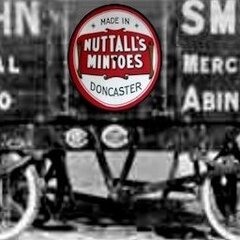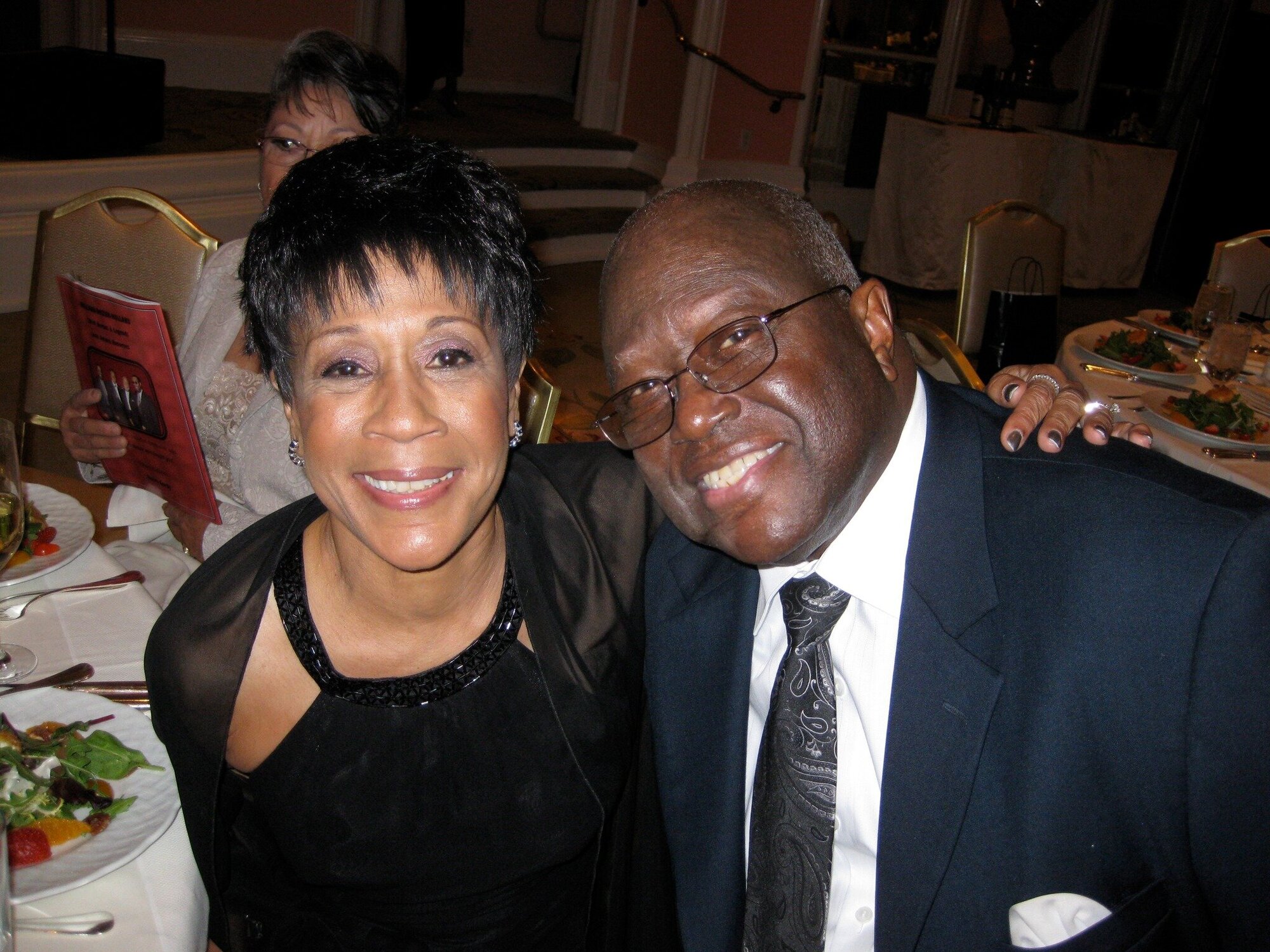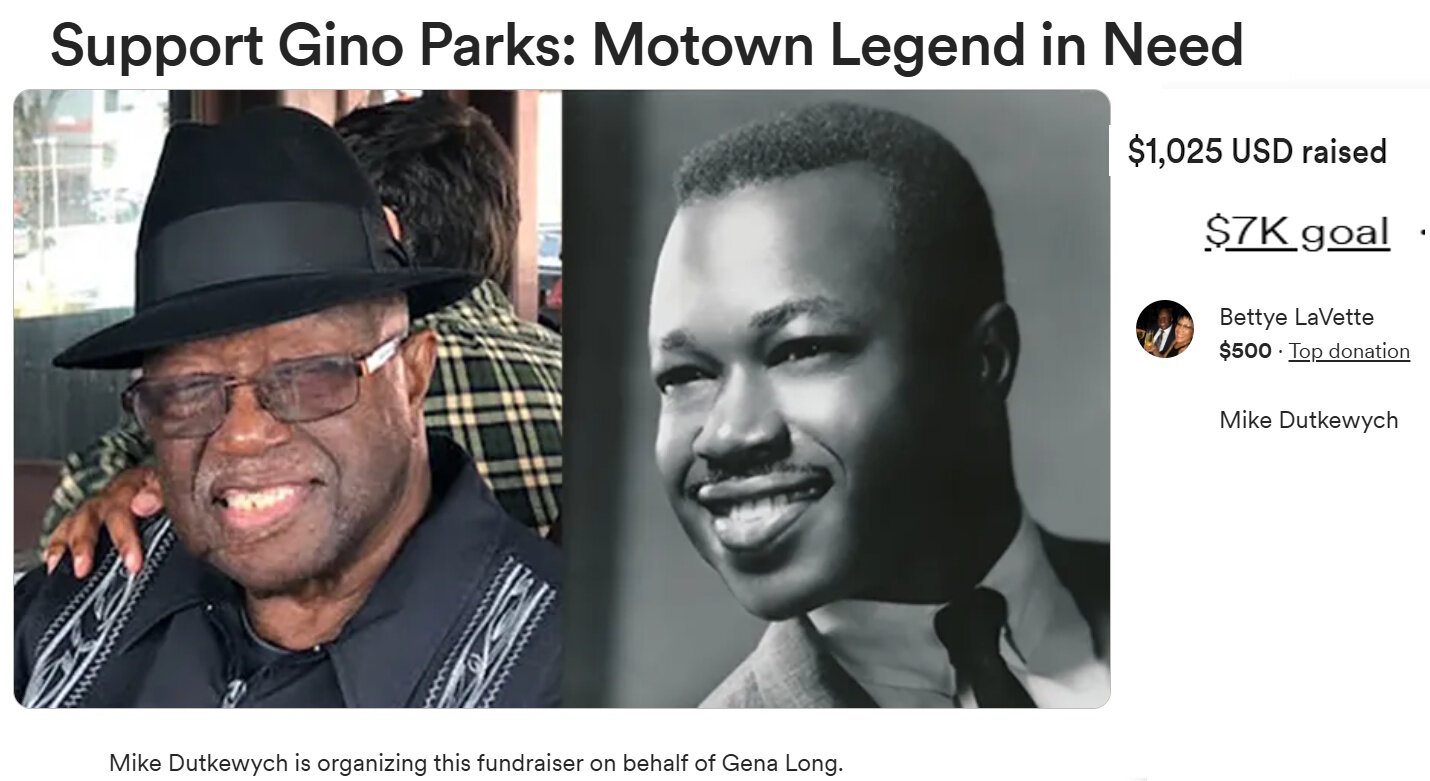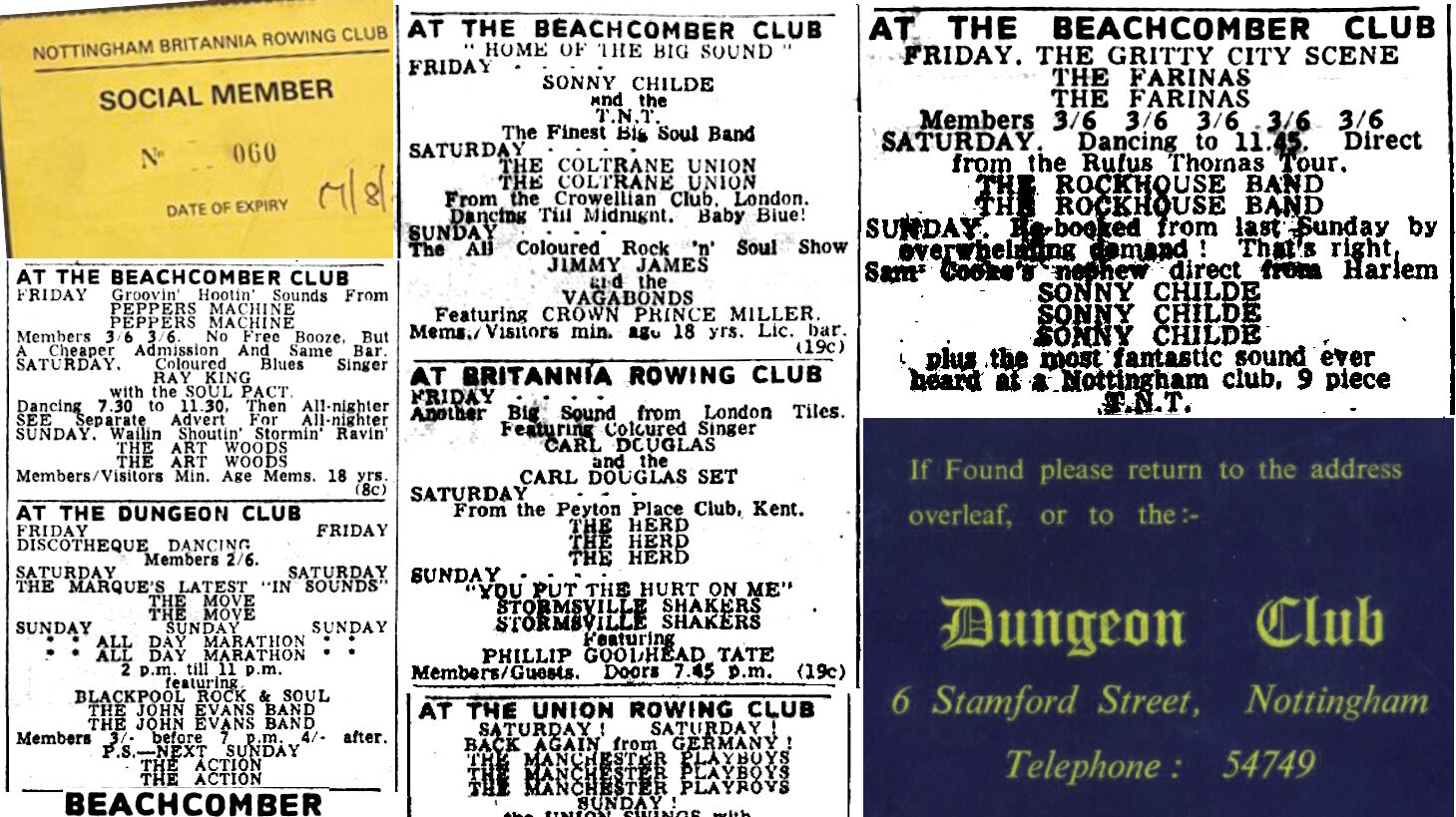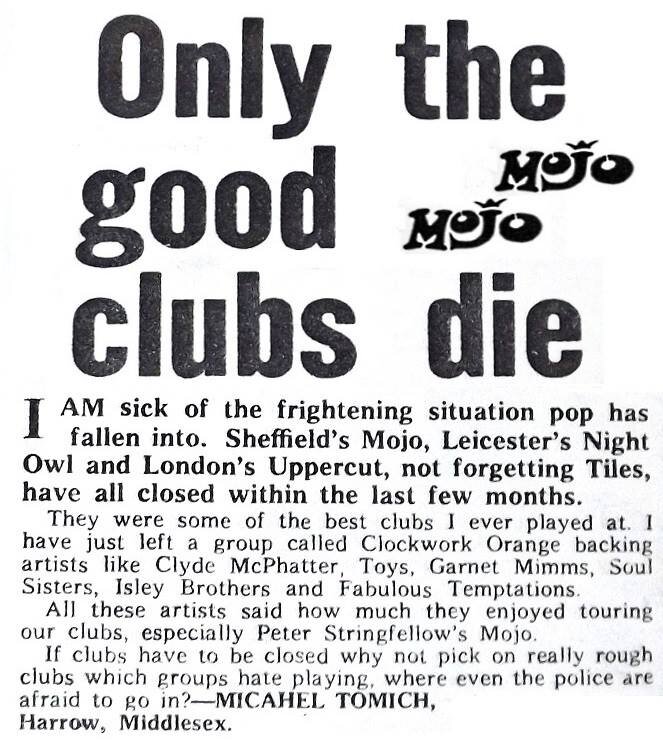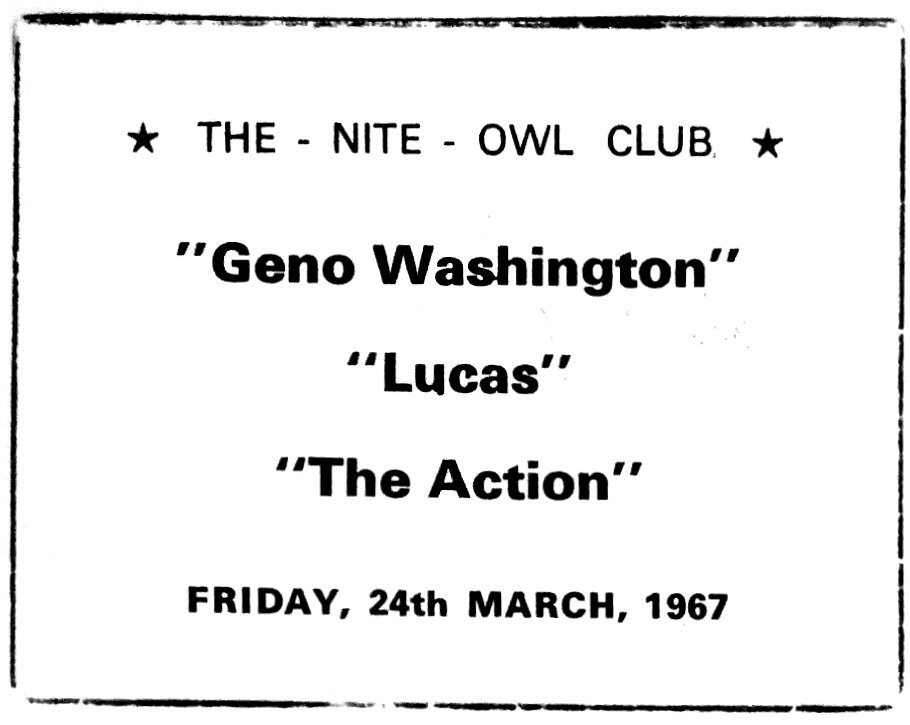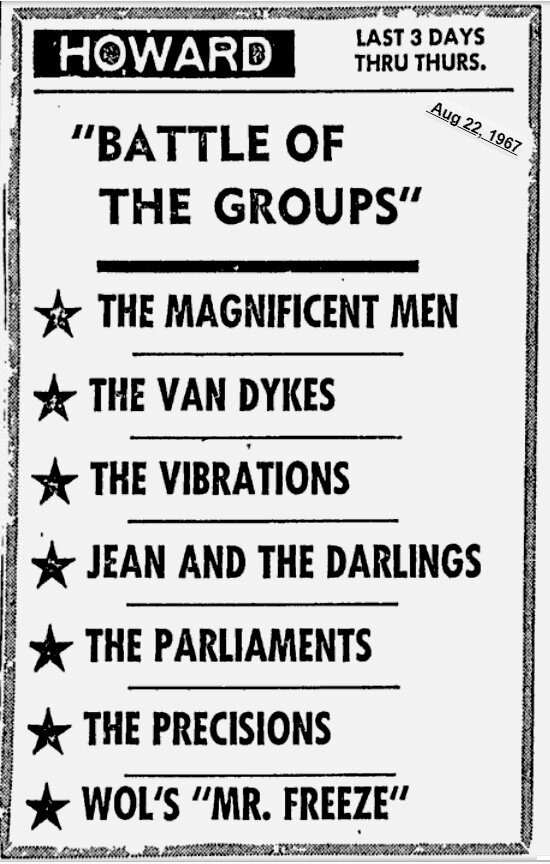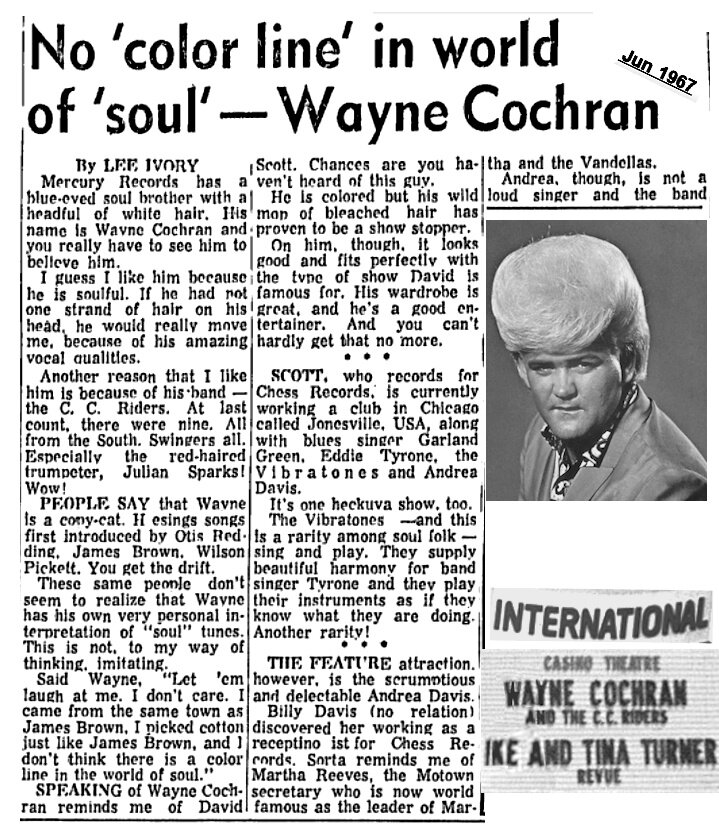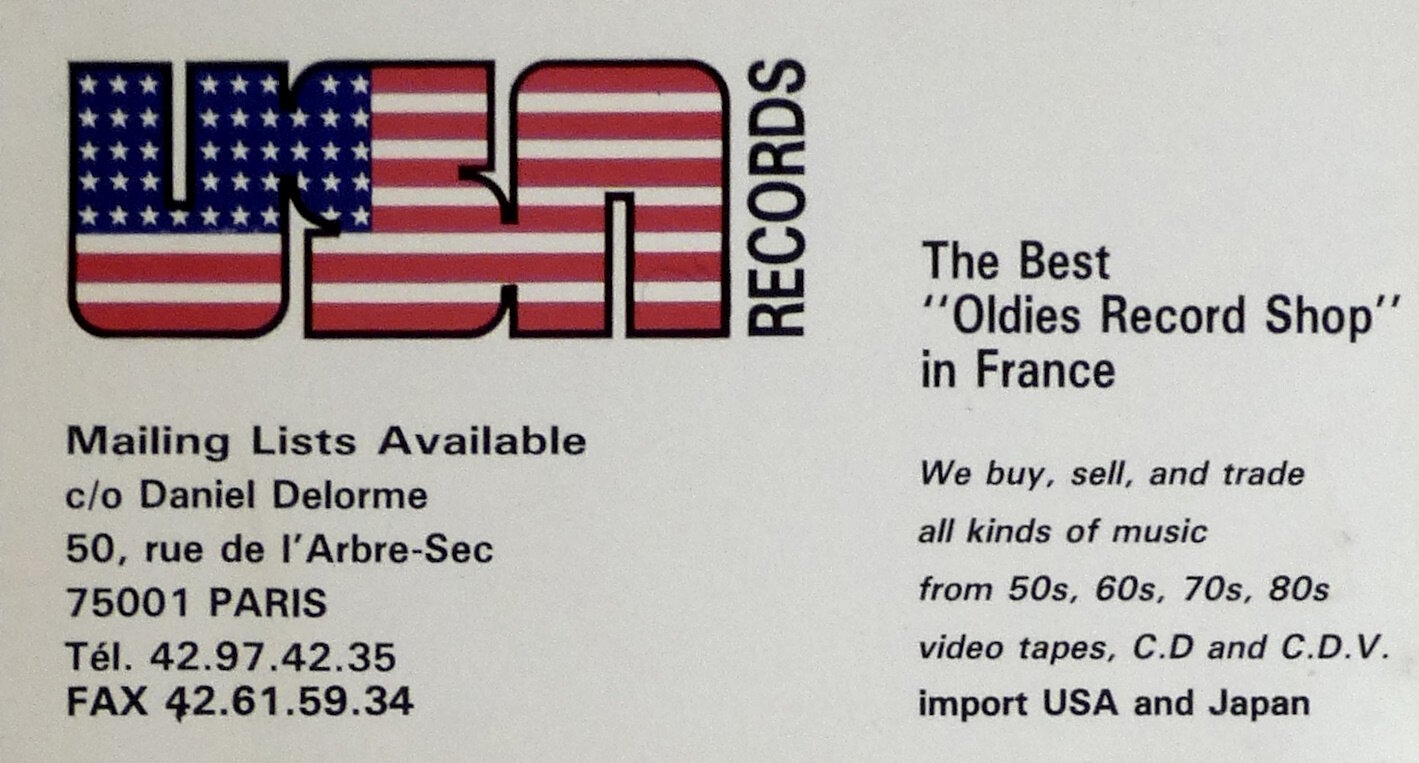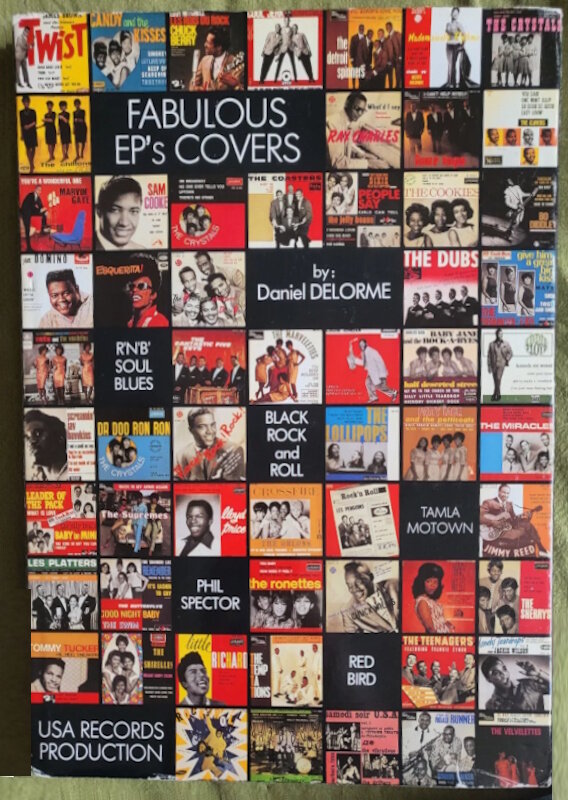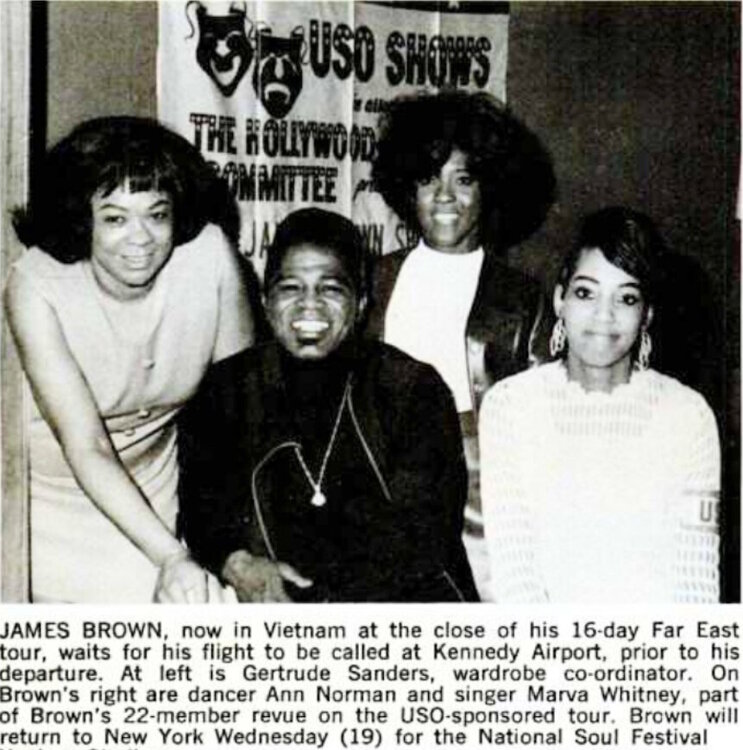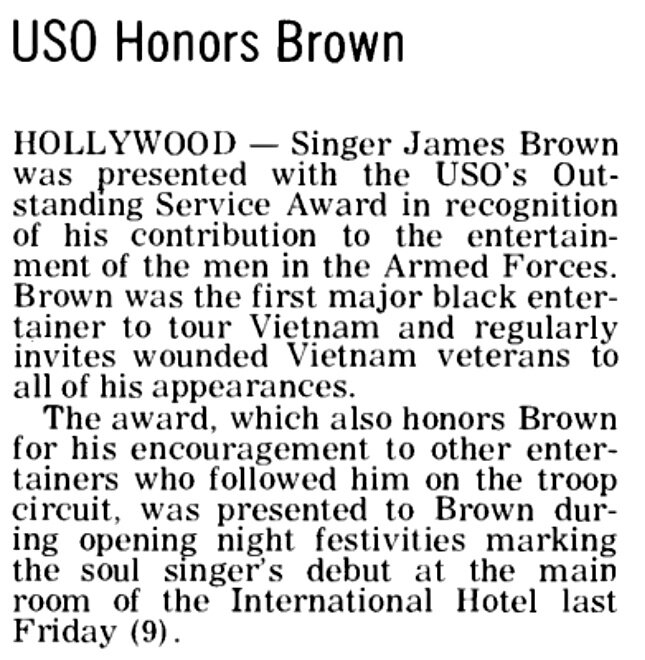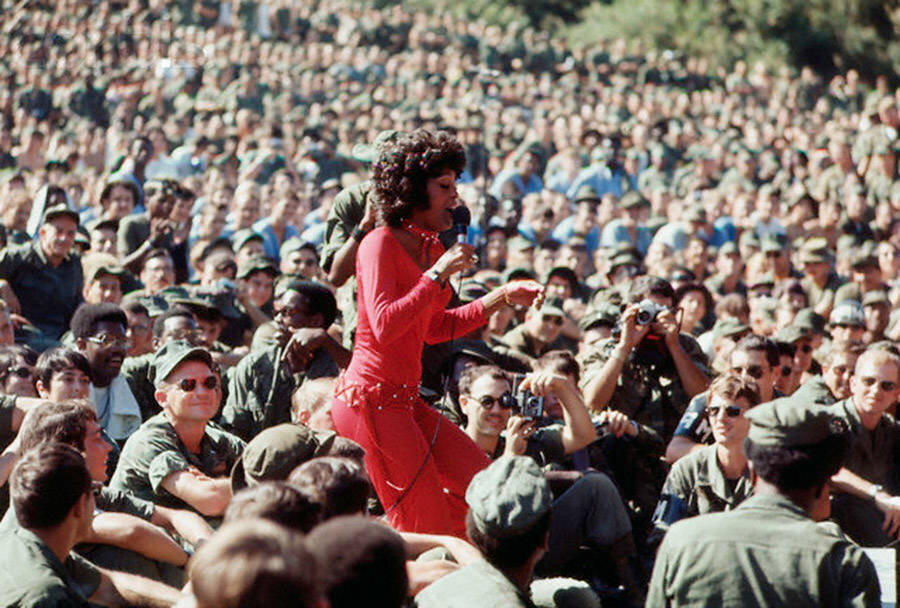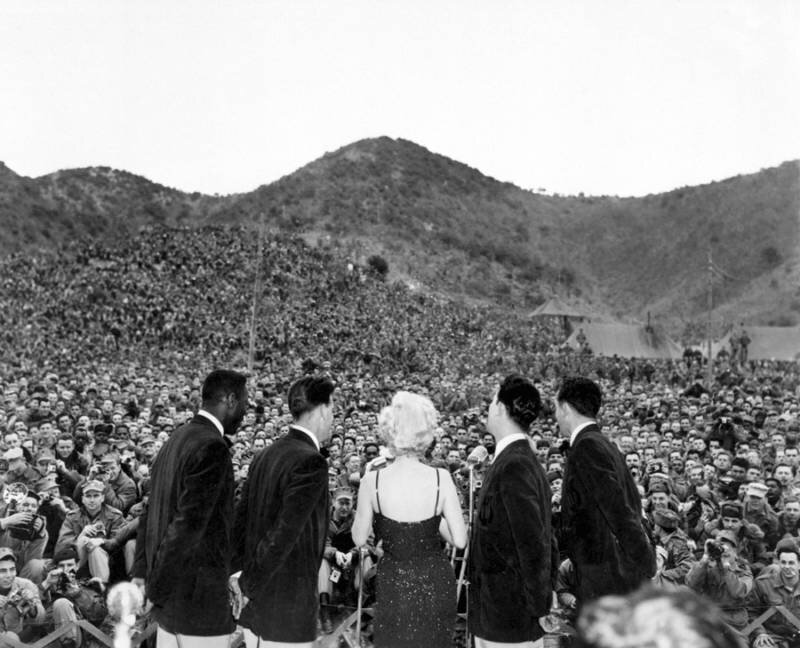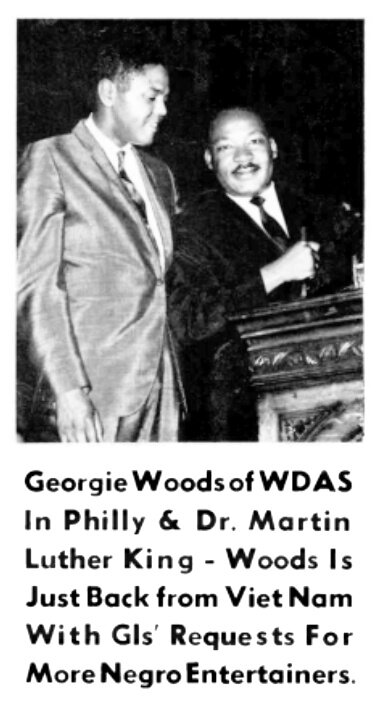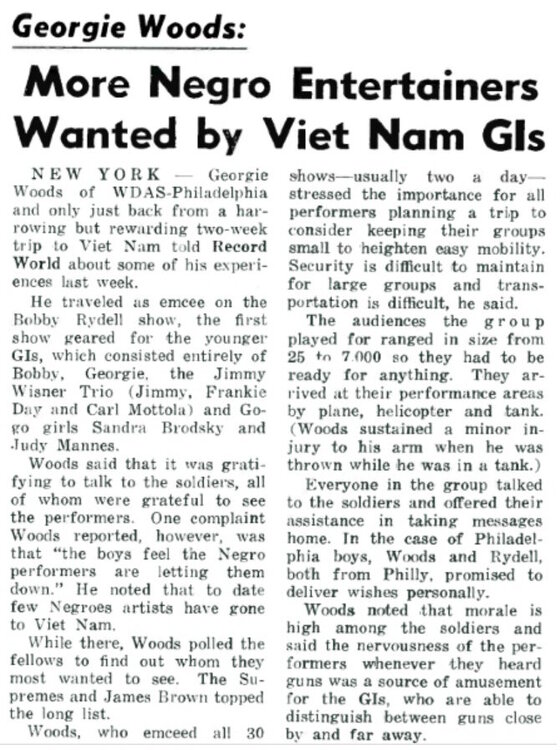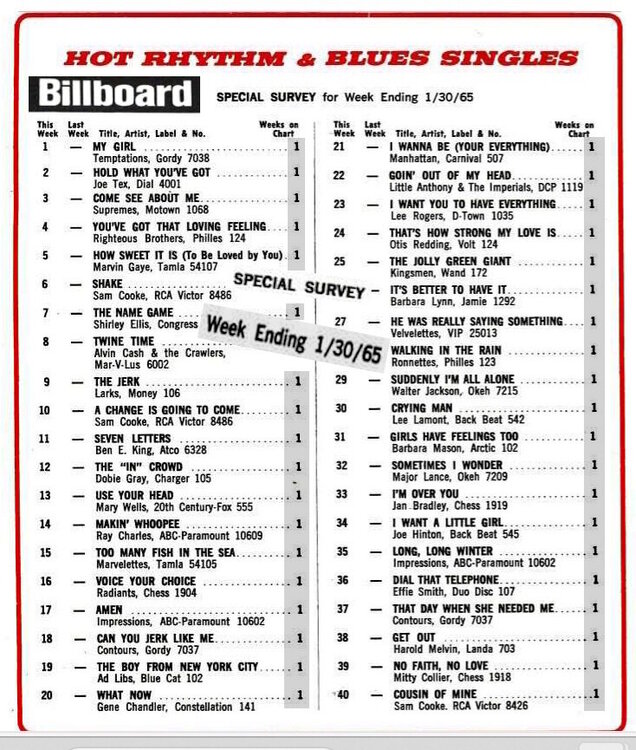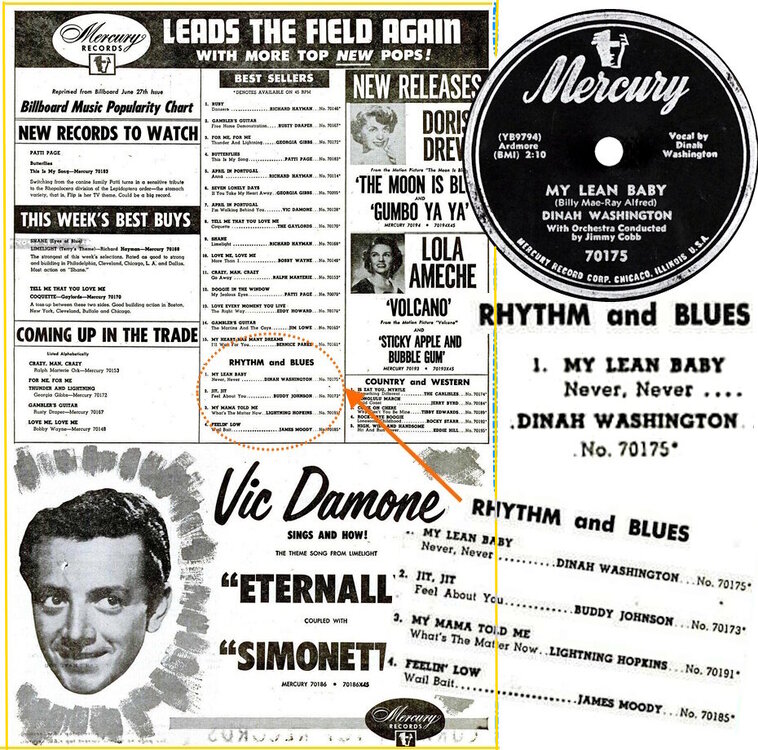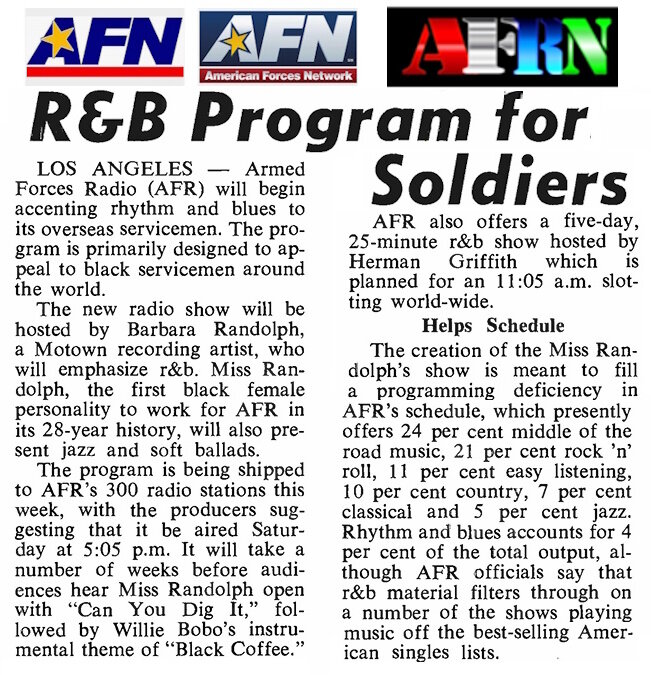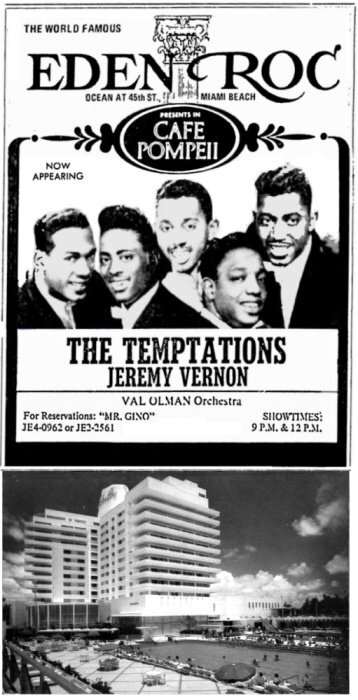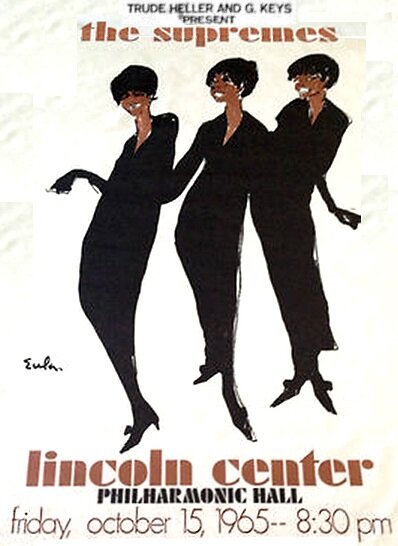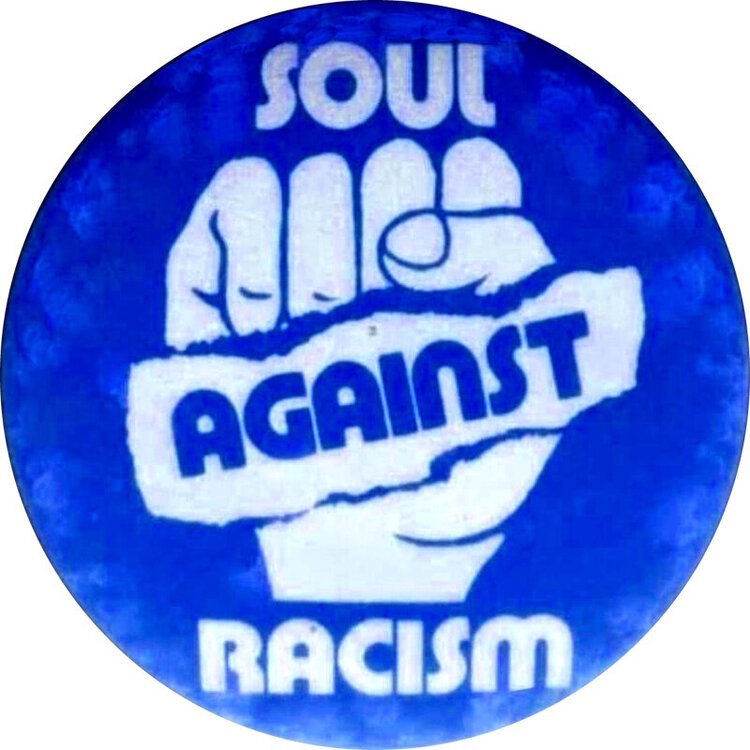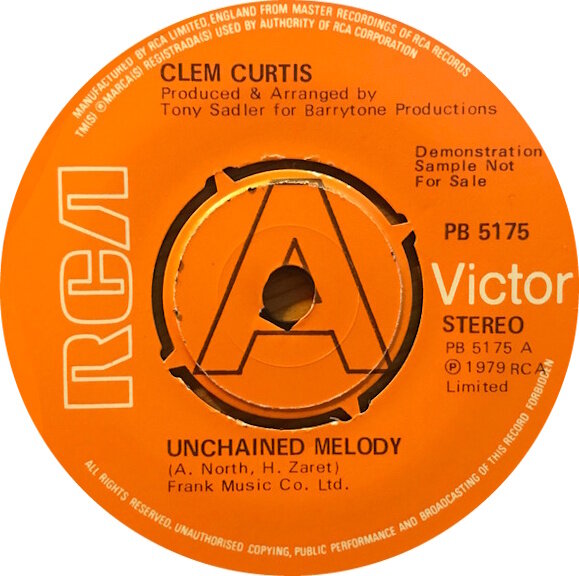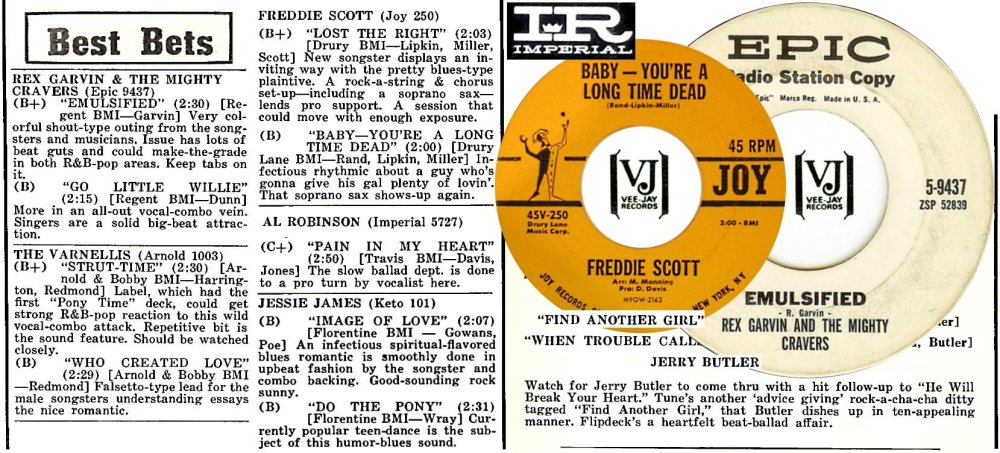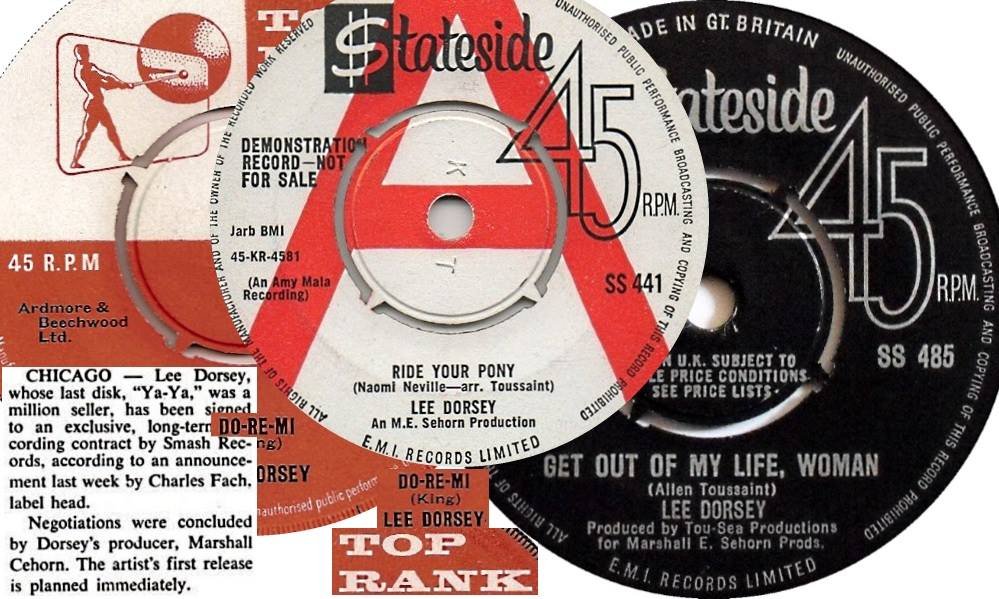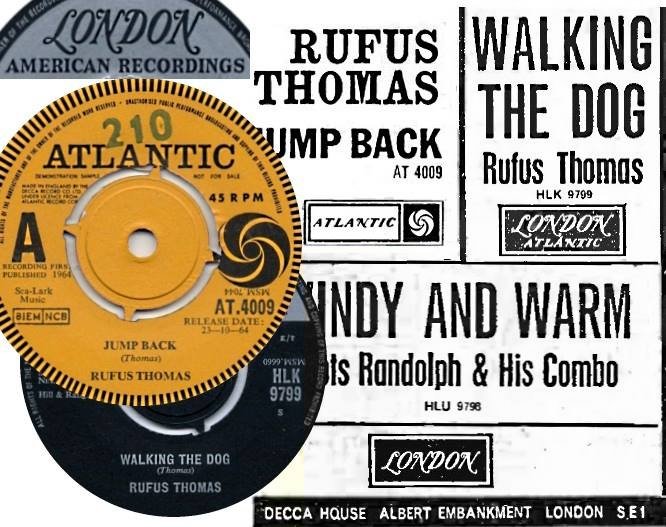Everything posted by Roburt
-
Versions of Hello Stranger
The Maze (UK mod group), Yvonne Ellerman (pop version), Carrie Lucas (80's soul disco version), She with Kim Waters (hip hop), Reggie Milner (Stax soul), Darius (soul), Alpha Zoe (soul), Fire & Rain (70's pop soul), Julia Holter (pop) + a few reggae versions (Jennifer Lara, Derick Lara, Frankie Young Brown Sugar, etc). A few more too I'd guess.
-
GINO PARKS -- gofundme Fundraiser
Berry dropped Gino Parks in 1962, so I don't think he'd be overly interested in this fund.
-
1960's London Mod / Soul Clubs
Most (music) clubs in London in the 1950's were jazz clubs -- the 100 Club for instance was one of many jazz clubs & it (the 100 Club) stuck mainly with jazz right through to the late 60's. Though it did host some R&B nights for a period, but usually only one a week, with the other nights featuring jazz still. As the 60's hit, blues was starting to take over but jazz clubs still held sway. To differentiate between a club's usual jazz content & their newer blues / R&B nights, they'd often rebadge themselves on R&B nights. During the 50's, a favourite jazz haunt was near Leicester Square; STUDIO 51 ( a basement dive). Lots of times a club would list it's address as say LEICESTER SQUARE as that was the closest tube station, whereas it would probably be located a few streets away. Studio 51 was actually in Gt Newport St. This club featured jazz from the start of the 50's but was also hosting blues nights by 1963/64. To 'flag up' to it's clientele what nights were what, it kept the Studio 51 badge for it's R&B nights and became the Ken Colyer Club on it's jazz nights (Colyer usually being the live attraction, the Rolling Stones were the resident group on R&B nights in 63). R&B clubs soon attracted mods and they'd start to take over as a venue's usual crowd. Another club that also gave it's address as Leicester Square was another jazz club, the Florida Club (just east of Chinatown). This had prospered in the 1950's when it's usual live act was led by Tony Kinsey (a famous British jazz drummer who'd been resident @ the Flamingo Club ahead of moving to the Florida Club). I'd guess like most London clubs from 62/63, it also started hosting blues / R&B nights and these must have attracted a mod crowd. Another club in the same area was the Ad Lib. This was located above a cinema in Leicester Place (on the edge of London's Chinatown). This was frequented by members of the Beatles after they'd moved to London. There were quite a few clubs actually in / or next to Carnaby St in the 60's (it being the top hip address during those times). The most famous of these clubs were housed @ 50 Carnaby St. Again, they'd started life as jazz clubs -- being (in the 50's) the Sunset Club. From 1961, it was known as the Roaring Twenties. As it featured black music, it attracted a black audience, including GI's who were based around the London area. After it's jazz period, it would host bands such as the Who, Beatles, Stones & Georgie Fame. Again, it was soon pulling in mods as it's audience. Between Carnaby St & Leicester Sq was the most famous of London's 'music streets' -- Wardour Street (home to the Marquee -- which had also started life as a jazz club). However, the most famous London mod club was the Scene Club. This was located in Ham Yard, not far from the south end of Wardour St (& just west of Chinatown). Charing Cross Stn (trains from there go through London Bridge stn & onto Brighton) is located not too far away from Leicester Square / the then Florida Club.
-
GINO PARKS -- gofundme Fundraiser
-
GINO PARKS -- gofundme Fundraiser
Posted up by Bettye Lavette on Facebook ... When I first met Johnnie Mae Matthews, before I had even recorded My Man, she took me around to some clubs. The first three people that I met were Timmy Shaw, Willie Jones and Gino Parks. I have been friends with and stayed in touch with both Willie and Gino ever since. I hope that he is well, and that all of you record collectors will give something, especially if you've ever listened to any of his records. Fundraiser for Gena Long by Mike Dutkewych : Support Gino Parks: Motown Legend in Need
-
RACISM in the Music World ...
The above must have been a different tour, as the group I posted her performing with in Korea were definitely black (or she had 2 different backing groups with her).
-
Backing singers
Seems that as well as being a great artist in her own right, Josie James has spent years doing backing vocal work (in the studio & live). Her web site shows just some of the albums she sang on (Stevie Wonder, Jeffrey Osbourne, EW&F, Commodores, Brothers Johnson, George Duke, Crusaders, Al Jarreau, Patrice Rushen, etc, etc. ......... josiejamesmusic.com Official Discography
-
Video: BBC Midlands Today: Blue Plaque Feature - Northern Soul Plus
There's a great mod / soul exhibition on in Brighton till the end of the year (well worth a visit). A similar exhibition was staged in Leicester a while back & included stuff relevant to East Midland's soulies from Leicester, Nottingham, etc.
-
RACISM in the Music World ...
But do you know the name of the doo wop group that performed there with her ? (see pic in my post above).
-
RACISM in the Music World ...
A big show (BATTLE OF THE BANDS) @ DC's Howard Theatre in summer 67. The Howard was a chitlin circuit venue -- just about all black acts would appear there -- with the odd white soul artist being included on occasional revue bills that played the venue (the Magnificent Men being such a group on these shows). Blacks acts predominately played chitlin venues and got used to how they were treated by the owners. Bigger venues such as the big city theatres (Howard, Royal, Uptown, Fox, Regal, Apollo, etc) would usually have their own band backing up the acts, so the groups / singers had to do very little to set-up. In smaller venues & clubs, black acts had to use their own backing band. The band would be expected to tun up early, drag all their equipment (amps, instruments) into the place, set it up / sound balance it, etc and then come back to do the actual show later in the day. This was the sort of touring experience the likes of Lou Ragland's Hot Chocolate had to get used to. He'd earlier done the same when touring as a member of Kim Tolliver's band and in the band backing the O'Jays. BUT in 1967, Terry Knight split from his group, the Pack. He was in big demand for live shows as he'd had a hit with his cover of Ben E King's "I Who Have Nothing". He had always been popular in Cleveland & had lots of friends there. So he headed over to Ohio to hire a new backing band. Lou was just about the 1st guy he hired & the new ensemble were soon off on the road. Terry played mainly 'white circuit' clubs and Lou couldn't believe the difference in how they were treated in these. The band would turn up at the venue, to be met by guys hired by the club. They'd shift all their heavy gear into the club & set it up on stge. While this was going on, the musicians would be given food & drink. When all was ready, they'd do a quick sound check & then head off to a local hotel to rest till it was time for the show. Back to the club in the evening & do the show. Afterwards they'd spend time chatting with any fans who stayed back after the show finished, until the club's hired help had loaded all their gear back on their van / bus. Then it was either back to the local hotel to sleep or a start would be made on the journey to their next gig. Lou never really came to terms with the difference in how he was treated when backing a white singer & how he was normally treated as a black musician working behind a black act.
-
RACISM in the Music World ...
A view from the 'other side' ... Wayne Cochran's view on colour in music ... BUT THEN ... Wayne got a Vegas residency for some years (@ the International which became the Hilton). Ike & Tina played Vegas (back in the day), so did Little Anthony & Imperials, Jackie Wilson, Motown artists & many black acts ... but the only black group I can recall getting a long Vegas residency (at a top casino) was the Checkmates Ltd.
-
USA RECORDS, PARIS
Anyone else here visit this Paris record shop OR buy from them. They were always a great place to get hold of those French EP's from Motown, Atlantic and more. I visited around 1989 / 90 when on a vacation in Paris. Got a few of my wants too -- the Stevie Wonder EP that contains "Love A Go Go" and an Atlantic one that featured "Stupidity" -- Solomon Burke + a few more (can't remember what the others were as it was 35 years ago). The guy that ran the store (Daniel Delorme) was a helpful fella. He brought out a book about the French 'soul' EP releases, featuring the picture covers of most of them. When I was at the shop, I spent all my money on vinyl, so didn't get a copy of the book. I've since rectified that situation. As he deemed me a good customer & obviously had gathered I was a Brit, he gave me a supply of the posters he'd had printed up to promote the book. I had 5 or 6 of these posters & added one copy in to the raffle prizes I put together for a CURTIS MAYFIELD FUND raffle I ran at one of the Cleggy Weekenders (with Ady's permission). BUT Ady saw what I had as raffle prizes & knew ROGER 'Co-operative' BANKs wanted the book, so he took the poster and gave it to Banksy. Anyway, I'll get to the point, I know I have the rest of these posters somewhere here (in the loft most probably) ... BUT as I used to work in a drawing office & could print off huge 'soul related' posters myself (I used to decorate the SOUL BARN private parties staged by the Ward's in Ravenfield, Rotherham). These events ran for many years & I printed up 'poster's for each new one. So the loft is full of them (some as big as 6 ft by 4ft), so finding the stash of USA Record posters amongst that lot ain't gonna be easy. Anyone else here got a copy of that poster & can post it up here ?
-
Backing singers
If you were a hired musician or backing singer, you were sure to get paid for your day's work. If you were the named artist on a session (be it a solo singer or group) you got no such pay. If the session resulted in a record being released & it sold well ... you just MIGHT get some royalties for your efforts.
-
Backing singers
Yes, just posted it as I thought I remembered it. Lou visited Detroit to find out 'THEIR SECRET' when Way Out were building their own studio back in Cleveland. So it most probably was Terra-Sherma or United Sound ... I'd have to find my old article on Lou on an old computer to double check which one it actually was (& finding it on an old computer is a thankless task). When I was running Lou's UK tour around 1990, one of the shows was organised by my old Worksop mate Pete Ward. As we were setting the venue up for the night & Lou was checking the sound system /mic set-up, I got Pete to play "If This Is Love" as he checked the wiring was also good to the decks. Lou came running straight over yelling ... THIS IS THE TRACK I PLAYED ON ...
-
RACISM in the Music World ...
Just like AFN usually ignored the listening needs of black military guys ... USO usually did the same. USO was the United Services Organisation and they sent entertainers overseas to perform for the troops. In Vite Nam they usually got a package headed by Bob Hope or a visit from John Wayne or the like. Not many black army guys were too thrilled with those performers & wanted someone to be booked who they'd like to see. In the Korean War, Marilyn Monroe did a USO tour visiting about a dozen different camps -- she was accompanied on these shows by a black doo-wop group. There's 100's of pictures of her on that tour & dozens of articles about it. But even though the doo wop group are even pictured singing with her on stage, I couldn't find one mention of who they were. They weren't named even once. Eventually James Brown said he'd go out to Viet Nam to do some shows & they were so popular he was awarded a medal. A few other black stars were added to Bib Hope style packages that headed out to the far east too, but not that many (Lola Falana being one -- see pic). Philly radio DJ Georgie Woods even toured Viet Nam (with Jimmy Wisner) to meet the needs for entertainment of blacks in the military.
-
RACISM in the Music World ...
How true. Lots were bowled over by the kindness shown them by Brits, both industry people & their audience members. FOR INSTANCE, Edwin Starr was booked to play his 1st ever UK club date @ the King Mojo in Sheffield. He headed up to the 'Steel City' from London, UK backing band in tow. Only when he got there did he realise he was playing the niter session & wouldn't be on stage till around 2am. The band were OK with that as they just planned to drive back home (London ?) thru the night. But Edwin didn't want to do that as his body clock was still on US time. He had words with Pete Stringfellow & Pete arranged for him to sleep on the floor at his mother's house after his performance & go on with his UK exploits the next day in normal time (i.e. after 9am) ... after that, one of Edwin's best British friends was always Pete Stringfellow (that's why Edwin was signed to Stringers record label in 1985).
-
Backing singers
Not a backing vocal comment but backing musician related ... Lou Ragland played on the backing track to the Precisions "If This Is Love" @ Golden World studios. But, until he played the Prestatyn Weekender, he'd never met any of the group (they added their vocals at a later session in the studio). I's say (after the mid 60's), many backing singers contributed to sessions but never actually met the singer / group who's efforts they'd help assist on the track.
-
RACISM in the Music World ...
Lots of examples of this down the years, many emanating from the USA .... ... In southern states till after the mid 60's, audiences were segregated for music shows, even those that starred an all black line-up. Anyone getting up to dance to say Little Richard or the Marvelettes at a show would be attacked with billy sticks by the local police if they 'mingled' whilst dancing (each colour had to stay their own side of the dividing rope). Black acts being told they couldn't eat / sleep / drink in lots of southern food halls & hotels. In Miami, top black acts appearing as the star attraction in the hotel's concert room weren't allowed to eat / drink or stay at those same hotels and they were even banned from entering them via the main front doors. How ingrained this practise was is illustrated by US soul singers who came to the UK in the 60's to tour ... many felt too scared to use the front entrance to the London hotel they were staying in whilst in the city (even when told by their British friends that they had no need to use the service entrance. The top US music mag -- BILLBOARD -- even abandoned it's black chart (R&B CHART) for a period of around 14 months (up to late Jan 65) as ... there was no need for a black chart with so many R&B records getting in their HOT 100 pop chart. The first R&B chart after Billboard reinstated it (30th Jan 65) showed every 45 as a new entry even though many of them had been on the charts for some months. All the US major record labels treated 'race music' / black music as a 2nd class citizen right through to the early 60's. The likes of Mercury would include new Rhythm & Blues releases on their full page ads but only as a small section tucked away near the bottom. The likes of RCA never really paid much attention to black acts (apart from a few such as Sam Cooke) until the mid 60's -- by then they had to as black acts were some of the biggest sellers in the US. Right through the 50's / 60's, if there was a popular black record out, the majors would rush out a 'white pop' version of the song to take away many sales from the original version. They'd also get their top white acts to cut covers of popular 'black songs' -- the likes of Elvis, the Crew Cuts, Pat Boone, the Maguire Sisters, Ricky Nelson. In fact, Pat Boone had so many top hits with his insipid covers of R&B songs that his whole career was built on them. Top black acts had to fight to get bookings (even in the mid 60's) in top night clubs (New York's Copacabana for instance), top tourist resorts (Vegas & Miami Beach) and on US TV shows. It was only the likes of the Supremes, Temptations & other top Motown acts that eventually 'broke through' -- and to achieve that Berry Gordy had to get them to include many show tunes , MOR rubbish in their acts. Radio wasn't that much better, with most US pop stations ignoring the original black version of a popular song and playlisting the white cover version instead. US Forces radio was no better -- by the late 60's, the vast majority of soldiers sent to fight in front-line positions in Viet Nam were black guys. Loads were being called up & sent over there only to return in body bags (they weren't allowed to use 'bone spurs' as a way of avoiding service). Even though the military audience for Forces radio was substantially black, AFN didn't have much interest in programming black records. Up to Feb 69 a breakdown of AFN music content showed these % ... ... .. .. ... .. 24% MOR , 21% white rock / pop, 11% easy listening, 10% c & w, 7% classical, 5% jazz & 4% R&B. It was only because of overwhelming demand that they started R&B shows hosted by the likes of Barbara McNair & Hernan Griffin to meet their audience's needs. At least, in this country, we only treated black acts as inferior second-classers on very few occasions. In fact we usually treated visiting US singers / groups with great respect (not something that could always be said about how our Caribbean immigrant UK based acts were often treated). It wasn't just coincidence that DAVE GODIN used to end his B&S articles with the 'DO WHAT'S RIGHT, NOT WHAT'S WHITE' statement back in the day. Of course, in the 'wider world' across America, many other injustices occurred. When politicians deemed it necessary for major freeways to be constructed to connect into city centres, it was just about always black neighborhoods that would be selected as the route for these wide roads. The likes of Miami, Detroit, Chicago & many other cities had their main black housing areas demolished. With their clientele scattered to the 4 winds, the local black businesses (hotels, clubs, bars, shops) would soon have to close down. . . . . I'm sure lots of other examples of discrimination in the music world have gone unlisted above ... anyone want to list any others I've missed ...
-
Backing singers
AN INTERESTING ONE ... Atlantic used all sorts of guys / gals as backing singers on their NY sessions -- al lot of the time it being the Sweet Inspirations. BUT ... in November 1967 they took the remaining 3 Drifters into the studio. They recorded "I Dig Your Act" (Bill Fredericks on lead), "Still Burning In My Heart" (Johnny Moore on lead) + a couple of other songs. As there were only 3 guys on the session, it's said they used another track on the backing tape for the same 3 guys (Bill, Johnny & Rick Sheppard) to do their own harmony backing vocals. GUESS no other Atlantic acts were around the studio at the time.
-
What was your first boot?
It would have be a SOUL SOUNDS 45 bought around 1970.
-
Backing singers
Luther Van Dross was mainly working as a backing singer on NY / LA studio sessions up to 1974/75. Then in 1975 he was hired as a backing singer for David Bowie's 'Young Americans' album sessions. Bowie watched him do some of the backing vocals & was immediately impressed. He went away & listened to a couple of LVD tracks, He then told Luther that he was too good to just be singing backing & asked to use one of his songs -- it became "Fascination" for Bowie but it had started life as "Funky Music (Is A Part Of Me)".
-
Backing singers
At the likes of Motown, Stax, Fame, etc, who ever was around & available (+ willing) would be utilised as backing singers on the tracks being cut at that particular time. Eu(Gene) Dozier didn't think he was getting the opportunities he deserved in Philly back in the mid 60's. He spoke with a couple of Motown guys backstage @ the Uptown Theatre. They said he should try his luck in Detroit, so he did. He travelled over to the Motor city & turned up @ Hitsville Studios. They weren't expecting him but were willing to let him hang about. He wrote some songs while there (one was cut by the Marvelettes & eventually released in 69 -- "Too Many Tears, Too Many Times"). But he told me that he also got called on when the writing team were finishing work on Stevie's "Uptight". As he'd been around for part of that work, they asked him into the studio to sing backing on the recording (that would have been around October 65). His time at Motown wasn't very productive though, so he moved across the city to Golden World. There he badged himself as 'Billy the Kid' and wrote, produced & sang backing on a good number of tracks (he worked on / co-wrote Pat Lewis's "Let's Go Together" + other stuff there). By early 67 (maybe late 66), he'd moved on again & was LA based. I believe he sang backing on the Groovettes Reness 45 and also on Lorenzo Manley's "To Prove My Love" ( he is actually the lead vocalist on the "Swoop Down On You" side). I'd say that ID'ing all the top singers who sang backing on other artists tracks is now an impossible task as many would just 'help out' if they happened to be around the studio at the right time.
-
Clem Curtis -- Unchained Melody > Boot
Anyone know why Clem Curtis's UK recorded (& UK RCA released) version of "Unchained Melody" was booted on a US Rhythm label 7" ? He had been popular in the US since quitting the Foundations and had even based himself there for a few years (when he had landed a record deal with Imperial in 69). It's an uptempo disco version of the song, so I guess it could have been a 'beach scene' play. There's a few boots from that time (early to mid 90's ?) on the Rhythm label but I have no idea what demand they were meeting. Early 90's was the time the old hit version of the song was used in the movie GHOST, so I guess it could have gotten plays as a spin-off of that.
-
The Birth of Soul
There's a few pure soul records here ... and the 2 guys singled out below had a big hand in making early soul tracks (+ they certainly popularised soul releases here in the UK) ... AND AS SAID ABOVE .... Ike & Tina were in the soul bag from an early date ...
-
Valtone and The Fabulous Apollos...info please
Jumping back to the Futuretones. Edwin always promised his old group members he'd return for them when he left Cleve with Bill Doggett. William Isom took him at his word & was still waiting some years later. My interview with Edwin about his Cleve years was done ages ago & I can't remember whole chunks of it (but it was published in a UK soul fanzine if anyone has that to hand). Think some of the info in the blog posted above was lifted from my interview info. EDWIN, when he hit big with Agent 00 Soul did return to Cleve BUT just to pick up the old local musicians he knew / had worked with in the past. Those guys became his first backing band in his Ric Tic period (till they got tired of always being on the road & went back to Cleve).

